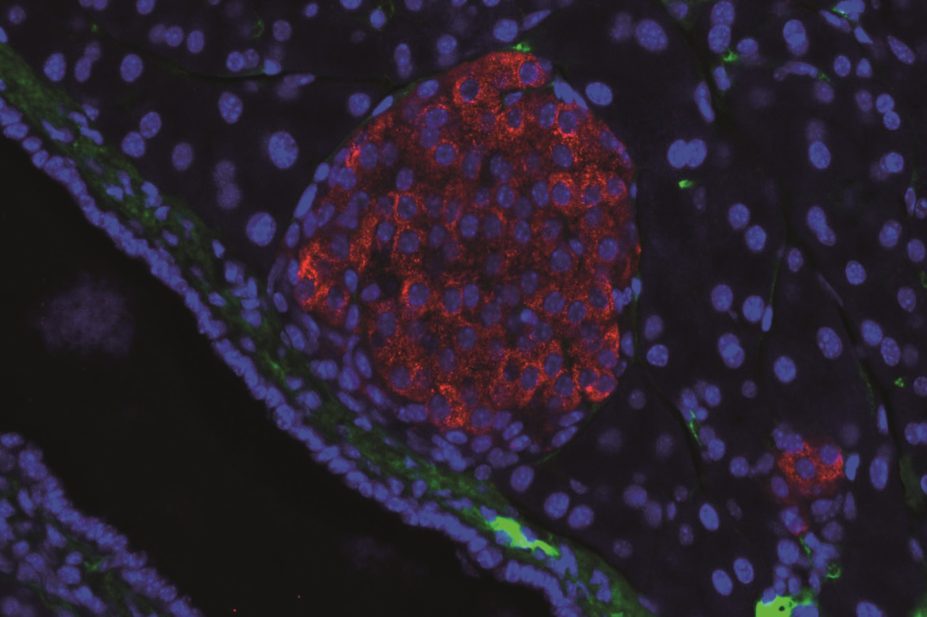
Jakob Suckale / Wikimedia Commons
Diabetes mellitus is associated with a loss of functional pancreatic β-cells, so there is interest in methods for promoting the regeneration and replication of these cells. Researchers now report in Cell Metabolism
[1]
(online, 18 June 2015) their successful attempts to stimulate human β-cells in vivo via inhibition of the receptor activator of NF-kB ligand (RANKL/RANK) pathway.
The team reports that osteoprotegerin — a protein involved in regulating bone turnover — induces human β-cell replication by inhibiting RANKL. Additionally, denosumab, an anti-RANKL antibody used to treat osteoporosis, enhanced human β-cell replication in humanised mice.
Together, the findings highlight the potential for repurposing an osteoporosis drug to treat diabetes, say the researchers, who now plan to evaluate diabetes patients being treated for osteoporosis with denosumab or other drugs.


